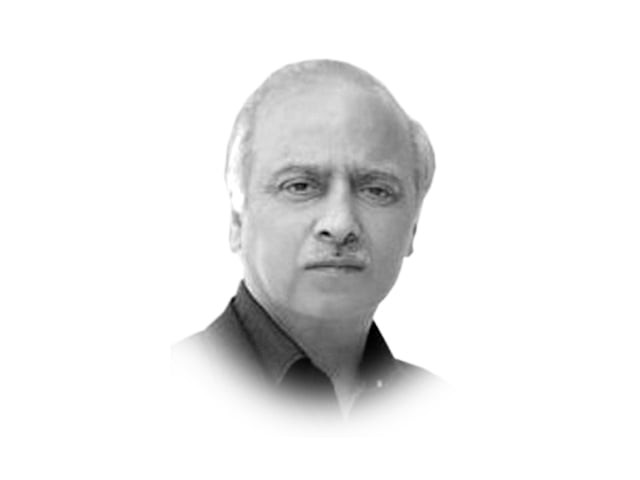Any judicial reforms in sight?
Can the top judiciary propose measures to prevent the collusion between lawyers and the subordinate judiciary?

The writer heads the independent Centre for Research and Security Studies, Islamabad and is author of Pakistan: Pivot of Hizbut Tahrir’s Global Caliphate
This context also prompted Justice Amir Hani Muslim (March 24) into remarking that 17 judges of the Supreme Court could not make the system of the country right. The nation should not assume that the 17 judges of the Supreme Court could streamline the system of the country.
Similarly, Chief Justice of Pakistan (CJP) Anwar Zaheer Jamali last week lamented the low conviction rate and called for greater introspection collective efforts within the justice sector and to turn things around. He was addressing a National Judicial Conference on ‘Transforming the Criminal Justice System’. “I have no doubt that the low conviction rate is a matter of concern for us all… no one organisation acting on its own can significantly change the conviction rate, as it requires a collective sector-wide coordinated and concerted effort from all parts of the justice sector,” the CJP said.
Legislature, in its wisdom, had taken steps, but “we, as the justice sector, also need to address this scenario… in our respective areas of competence and available resources,” the CJP said. He hit the nail on the head when he pointed that the system’s apparent “inability” to provide justice to the aggrieved, adversely affected public confidence in the formal justice system, encouraging citizens to seek justice by whatever means possible, thereby undermining the formal rule of law.
The phrase “justice by whatever means possible” — coming from no other person but the CJP himself — reflects a bitter reality as well as an admission of a bitter reality; in Fata, for instance, the draconian Frontier Crimes Regulation (FCR) threw the common people at the mercy of the political agent and many then sought justice from Shariat Courts run by Haji Mangal Bagh, or various factions of the Tehreek-e-Taliban Pakistan (TTP).
People in mainland Pakistan, where the British-era Criminal Procedure Code or the Civil Procedure Code is in vogue, a callous nexus between the bench and the bar in lower courts makes people run from pillar to post and drives them broke.
All justices, most of whom have risen through the lower courts to their current states, know that the system is expensive, tardy and suited more to the affluent and those with the muscle.
Driven by the popular sentiment and given to media publicity, former chief justice Iftikhar Chaudhry used to offer similar remarks while grilling politicians and officials from the civilian and military establishments. But the question that the current situation begs is what did he and other justices do to go beyond such pronouncements? Were any meaningful reforms undertaken to set things right, at least in the lower judiciary, where pendency is the highest and many cases, for example, flow from the inappropriate invocation of the stay-order.
The essence of the Order 39 (stay order) of the Code of Civil Procedure, as explained by a justice, is that “any personal civil right of a person seeking the order is threatened or infringed and he prima facie has a strong legal case and in case the prohibitory order is not issued he/she will suffer irreparable loss which cannot be ultimately compensated.” The former chief justice explained that “a stay order cannot be issued in routine, without considering the above and in case ex-parte order is issued, it has to be recalled when the other side files objection to it and shows that none of the above grounds exists to justify the issuance or continuance of the order.”
A lot of litigation in the lower courts results from malafide objections and ulterior motives of vested interests and thus embroils the respondents in an endless cycle of time consuming, often expensive legal battles. Such a situation obviously breeds frustration, fuels anger and, at times, can push the respondents to other extremes.
Can our legal justice system go beyond admission of problems, and initiate steps that can help those litigants who suffer because of the abuse of the “stay order” powers? Can the top judiciary propose measures to prevent, or at least minimise the collusion between lawyers and the subordinate judiciary?
Published in The Express Tribune, April 6th, 2016.
Like Opinion & Editorial on Facebook, follow @ETOpEd on Twitter to receive all updates on all our daily pieces.















COMMENTS
Comments are moderated and generally will be posted if they are on-topic and not abusive.
For more information, please see our Comments FAQ